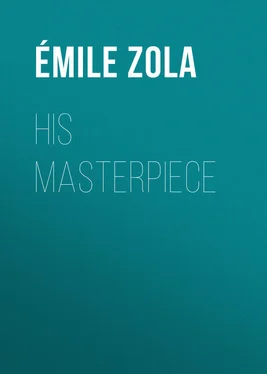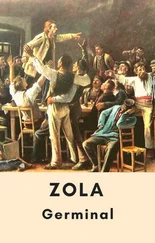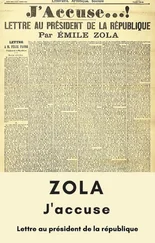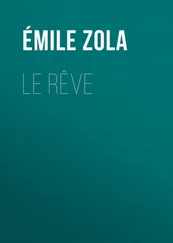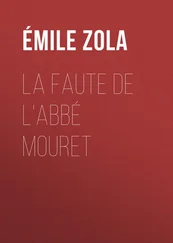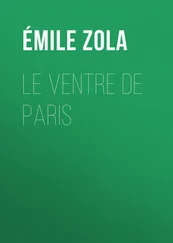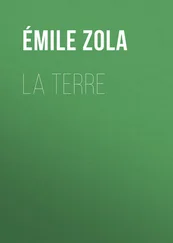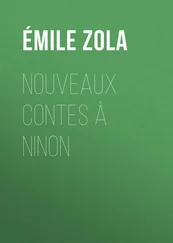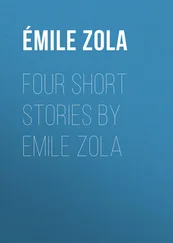Émile Zola - His Masterpiece
Здесь есть возможность читать онлайн «Émile Zola - His Masterpiece» — ознакомительный отрывок электронной книги совершенно бесплатно, а после прочтения отрывка купить полную версию. В некоторых случаях можно слушать аудио, скачать через торрент в формате fb2 и присутствует краткое содержание. Жанр: literature_19, foreign_antique, foreign_prose, на английском языке. Описание произведения, (предисловие) а так же отзывы посетителей доступны на портале библиотеки ЛибКат.
- Название:His Masterpiece
- Автор:
- Жанр:
- Год:неизвестен
- ISBN:нет данных
- Рейтинг книги:5 / 5. Голосов: 1
-
Избранное:Добавить в избранное
- Отзывы:
-
Ваша оценка:
- 100
- 1
- 2
- 3
- 4
- 5
His Masterpiece: краткое содержание, описание и аннотация
Предлагаем к чтению аннотацию, описание, краткое содержание или предисловие (зависит от того, что написал сам автор книги «His Masterpiece»). Если вы не нашли необходимую информацию о книге — напишите в комментариях, мы постараемся отыскать её.
His Masterpiece — читать онлайн ознакомительный отрывок
Ниже представлен текст книги, разбитый по страницам. Система сохранения места последней прочитанной страницы, позволяет с удобством читать онлайн бесплатно книгу «His Masterpiece», без необходимости каждый раз заново искать на чём Вы остановились. Поставьте закладку, и сможете в любой момент перейти на страницу, на которой закончили чтение.
Интервал:
Закладка:
But the painter waved him off with a peevish gesture. It was the old story – he did not know when to leave off; he intoxicated himself with work in his craving for an immediate result, in order to prove to himself that he held his masterpiece at last. Doubts had just driven him to despair in the midst of his delight at having terminated a successful sitting. Had he done right, after all, in making the velveteen jacket so prominent, and would he not afterwards fail to secure the brilliancy which he wished the female figure to show? Rather than remain in suspense he would have dropped down dead on the spot. Feverishly drawing the sketch of Christine’s head from the portfolio where he had hidden it, he compared it with the painting on the canvas, assisting himself, as it were, by means of this document derived from life.
‘Hallo!’ exclaimed Dubuche, ‘where did you get that from? Who is it?’
Claude, startled by the questions, did not answer; then, without reflecting, he who usually told them everything, brusquely lied, prompted by a delicate impulse to keep silent respecting the adventure of the night.
‘Tell us who it is?’ repeated the architect.
‘Nobody at all – a model.’
‘A model! a very young one, isn’t she? She looks very nice. I wish you would give me her address. Not for myself, but for a sculptor I know who’s on the look-out for a Psyche. Have you got the address there?’
Thereupon Dubuche turned to a corner of the greyish wall on which the addresses of several models were written in chalk, haphazard. The women particularly left their cards in that way, in awkward, childish handwriting. Zoe Piedefer, 7 Rue Campagne-Premiere, a big brunette, who was getting rather too stout, had scrawled her sign manual right across the names of little Flore Beauchamp, 32 Rue de Laval, and Judith Vaquez, 69 Rue du Rocher, a Jewess, both of whom were too thin.
‘I say, have you got the address?’ resumed Dubuche.
Then Claude flew into a passion. ‘Don’t pester me! I don’t know and don’t care. You’re a nuisance, worrying like that just when a fellow wants to work.’
Sandoz had not said a word. Surprised at first, he had soon smiled. He was gifted with more penetration than Dubuche, so he gave him a knowing nod, and they then began to chaff. They begged Claude’s pardon; the moment he wanted to keep the young person for his personal use, they would not ask him to lend her. Ha! ha! the scamp went hunting about for pretty models. And where had he picked up that one?
More and more embarrassed by these remarks, Claude went on fidgetting. ‘What a couple of idiots you are!’ he exclaimed, ‘If you only knew what fools you are making of yourselves. That’ll do. You really make me sorry for both of you.’
His voice sounded so stern that they both became silent immediately, while he, after once more scratching out the woman’s head, drew it anew and began to paint it in, following his sketch of Christine, but with a feverish, unsteady touch which went at random.
‘Just give me another ten minutes, will you?’ he repeated. ‘I will rough in the shoulders to be ready for to-morrow, and then we’ll go down.’
Sandoz and Dubuche, knowing that it was of no use to prevent him from killing himself in this fashion, resigned themselves to the inevitable. The latter lighted his pipe, and flung himself on the couch. He was the only one of the three who smoked; the others had never taken kindly to tobacco, always feeling qualmish after a cigar. And when Dubuche was stretched on his back, his eyes turned towards the clouds of smoke he raised, he began to talk about himself in an interminable monotonous fashion. Ah! that confounded Paris, how one had to work one’s fingers to the bone in order to get on. He recalled the fifteen months of apprenticeship he had spent with his master, the celebrated Dequersonniere, a former grand-prize man, now architect of the Civil Branch of Public Works, an officer of the Legion of Honour and a member of the Institute, whose chief architectural performance, the church of St. Mathieu, was a cross between a pastry-cook’s mould and a clock in the so-called First Empire style. A good sort of fellow, after all, was this Dequersonniere whom Dubuche chaffed, while inwardly sharing his reverence for the old classical formulas. However, but for his fellow-pupils, the young man would not have learnt much at the studio in the Rue du Four, for the master only paid a running visit to the place some three times a week. A set of ferocious brutes, were those comrades of his, who had made his life jolly hard in the beginning, but who, at least, had taught him how to prepare a surface, outline, and wash in a plan. And how often had he had to content himself with a cup of chocolate and a roll for dejeuner in order to pay the necessary five-and-twenty francs to the superintendent! And the sheets of paper he had laboriously smudged, and the hours he had spent in poring over books before he had dared to present himself at the School! And he had narrowly escaped being plucked in spite of all his assiduous endeavours. He lacked imagination, and the drawings he submitted, a caryatide and a summer dining-room, both extremely mediocre performances, had classed him at the bottom of the list. Fortunately, he had made up for this in his oral examination with his logarithms, geometry, and history of architecture, for he was very strong in the scientific parts. Now that he was attending the School as a second-class student, he had to toil and moil in order to secure a first-class diploma. It was a dog’s life, there was no end to it, said he.
He stretched his legs apart, high upon the cushions, and smoked vigorously and regularly.
‘What with their courses of perspective, of descriptive geometry, of stereotomy, of building, and of the history of art – ah! upon my word, they do make one blacken paper with notes. And every month there is a competitive examination in architecture, sometimes a simple sketch, at others a complete design. There’s no time for pleasure if a fellow wishes to pass his examinations and secure the necessary honourable mentions, especially if, besides all that, he has to find time to earn his bread. As for myself, it’s almost killing me.’
One of the cushions having slipped upon the floor, he fished it up with his feet. ‘All the same, I’m lucky. There are so many of us scouring the town every day without getting the smallest job. The day before yesterday I discovered an architect who works for a large contractor. You can have no idea of such an ignoramus of an architect – a downright numskull, incapable even of tracing a plan. He gives me twenty-five sous an hour, and I set his houses straight for him. It came just in time, too, for my mother sent me word that she was quite cleared out. Poor mother, what a lot of money I have to refund her!’
As Dubuche was evidently talking to himself, chewing the cud of his everyday thoughts – his constant thoughts of making a rapid fortune – Sandoz did not even trouble to listen to him. He had opened the little window, and seated himself on a level with the roof, for he felt oppressed by the heat in the studio. But all at once he interrupted the architect.
‘I say, are you coming to dinner on Thursday? All the other fellows will be there – Fagerolles, Mahoudeau, Jory, Gagniere.’
Every Thursday, quite a band met at Sandoz’s: friends from Plassans and others met in Paris – revolutionaries to a man, and all animated by the same passionate love of art.
‘Next Thursday? No, I think not,’ answered Dubuche.
‘I am obliged to go to a dance at a family’s I know.’
‘Where you expect to get hold of a dowry, I suppose?’
‘Well, it wouldn’t be such a bad spec.’
He shook the ashes from his pipe on to his left palm, and then, suddenly raising his voice – ‘I almost forgot. I have had a letter from Pouillaud.’
Читать дальшеИнтервал:
Закладка:
Похожие книги на «His Masterpiece»
Представляем Вашему вниманию похожие книги на «His Masterpiece» списком для выбора. Мы отобрали схожую по названию и смыслу литературу в надежде предоставить читателям больше вариантов отыскать новые, интересные, ещё непрочитанные произведения.
Обсуждение, отзывы о книге «His Masterpiece» и просто собственные мнения читателей. Оставьте ваши комментарии, напишите, что Вы думаете о произведении, его смысле или главных героях. Укажите что конкретно понравилось, а что нет, и почему Вы так считаете.
